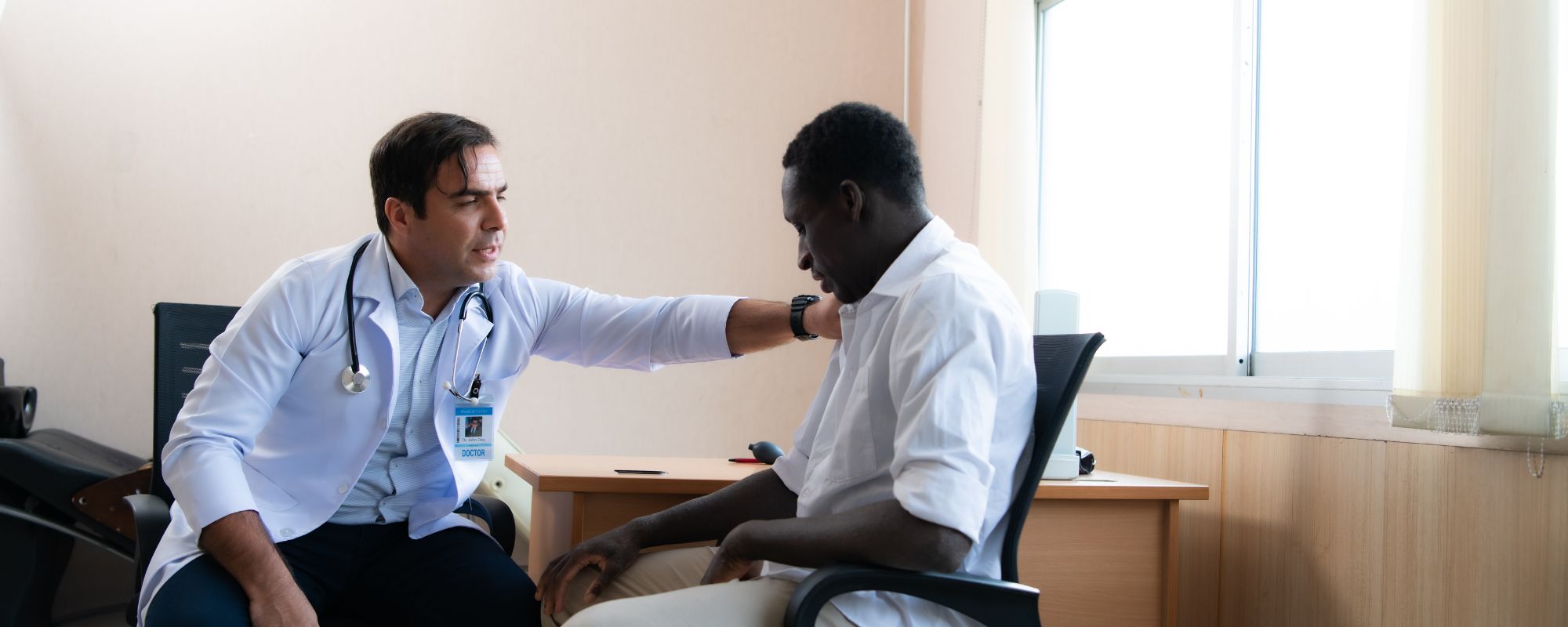Recovery is an ongoing journey that requires dedication, effort, and commitment. It’s not just about getting sober – it’s about building a new way of living that allows you to thrive without the use of substances. One of this journey’s key components is working a program of recovery.
If you are in recovery from drugs or alcohol, you may be wondering how you can work a recovery program to best support your sobriety. Find out more about the process of working a program of recovery, as well as how to take advantage of the tools, resources, and support available to help you stay on track and live a fulfilling, sober life.
What Does Working a Recovery Program Mean?
So, what exactly does “working a program” mean? In simple terms, it involves actively participating in a structured plan designed to promote sobriety and overall well-being. While different programs may have varying elements or approaches, they all aim to provide individuals with the tools and support necessary for sustained recovery.
For instance, a 12-step recovery program, such as Alcoholics Anonymous (AA), is based on a series of spiritual principles and practices that help individuals overcome addiction by addressing underlying emotional and psychological issues. These programs often involve attending meetings, working with a sponsor, completing steps, and developing a personal plan for maintaining sobriety.
Other recovery programs may focus more on therapy and counseling to address the root causes of addiction. This can include individual or group therapy sessions, cognitive behavioral therapy (CBT), or other evidence-based techniques.
Regardless of the specific recovery program chosen, working a recovery program involves actively engaging in the process and putting in effort to make positive changes. It also requires honesty, open-mindedness, and a willingness to take suggestions from others who have successfully navigated their recovery journey.
Working a 12-Step Program of Recovery
A program of recovery can refer to 12-step programs or efforts to improve yourself in sobriety, no matter where you are in the process. The 12 steps provide a framework for recovering from alcohol, drugs, food, sex, gambling, and other addictions. Originally developed by Alcoholics Anonymous, the 12-step approach helps people maintain sobriety and grow as individuals, whether inside or outside a treatment setting. The 12 steps include:
- We admitted we were powerless over alcohol— that our lives had become unmanageable
- Came to believe that a Power greater than ourselves could restore us to sanity
- Made a decision to turn our will and our lives over to the care of God as we understood Him
- Made a searching and fearless moral inventory of ourselves
- Admitted to God, to ourselves, and to others the exact nature of our wrongs
- Were ready to have God remove all these defects of character
- Humbly asked Him to remove our shortcomings
- Made a list of those we had harmed, and became willing to make amends
- Made direct amends when possible, except when to do so would injure them or others
- Continued to take personal inventory, and promptly admitted we were wrong
- Sought through prayer and meditation to improve our conscious contact with God, praying only for the knowledge of His will for us and the power to carry that out
- Having had a spiritual awakening from the steps, we carry this message to other alcoholics, and to practice these principles always
Participants in 12-step groups practice these steps to achieve the Promises of AA and maintain sobriety. Programs like AA, NA, and CoDA hold support meetings worldwide, available almost any time of day. With their wide availability, joining a 12-step program is highly recommended.
Working a Program of Recovery In Addiction Treatment
Living a program of recovery is more than just abstinence from drugs and alcohol, it’s a complete lifestyle change. It involves addressing the underlying issues that led to addiction, developing healthy coping mechanisms, and building a strong support system.
- A professional program of recovery often begins with detox, where individuals can safely withdraw from substances under the supervision of medical professionals. Medical detox facilities provide medication-assisted treatment and 24/7 supervision from medical professionals.
- Once detox is complete, the next step in a professional recovery program is often residential inpatient treatment. This type of program offers intensive therapy and support in a structured environment, usually lasting 30-90 days. It allows individuals to fully focus on their recovery without distractions or triggers from the outside world.
- Partial hospitalization programs (PHPs) are another option for those who do not require 24/7 care but still need intensive treatment. In this setting, individuals attend therapy and programming during the day and return home at night.
- Intensive outpatient programs (IOPs) offer more flexibility than PHPs as they typically meet for several hours a few times a week. This type of program is often used as a step-down from residential treatment or as a standalone option for those who need more support than traditional outpatient therapy.
- An outpatient program (OP), also known as standard outpatient care, involves meeting with a therapist regularly for individual or group sessions. This approach is suitable for individuals who are stable in their recovery and can function well without the intensity of higher levels of care.
Whichever program of recovery is chosen, the goal remains the same: to provide individuals with the tools and support they need to achieve and maintain sobriety. Different treatment modalities may be utilized during these programs depending on each person’s specific needs and preferences.
20 Tips For Working A Program of Recovery
If you are looking for tips on how to work a program of recovery to support your sobriety, here are 20 simple tips:
- Get a sponsor
- Build a sober support network that you can reach out to for support
- Go to meetings
- Get a home group (a meeting of AA or NA that you become a declared member of)
- Set up regular appointments with a therapist
- Schedule regular check-ups with a doctor to manage your mental health
- Stay self-aware and right your wrongs continuously
- Attend alumni events after completing treatment
- Help others who are struggling with addiction
- Offer to speak at addiction recovery meetings to inspire strength and hope
- Participate in community service
- Reach out when you need help
- Work with your case manager to set up aftercare options
- Join an outpatient program
- Continuously make healthy choices
- Discover your hobbies and practice healthy habit-making
- Become willing to set boundaries with people, places, and things that are harmful to your sobriety
- Join a support group for addiction or any co-occurring disorders
- Practice activities that provide spiritual growth
- Continue to grow your relationship with your higher power
Reach Out for Help With Addiction and Co-Occurring Mental Health Disorders
Are you struggling with substance abuse and mental illness?
Royal Life Centers at Chapter 5 is here to help you recover. Because We Care.
Our Programs of Recovery In Arizona
Royal Life Centers offers holistic programs of recovery in Prescott, Arizona. Our three Arizona addiction treatment centers incorporate programs of recovery that provide guidance in achieving lasting sobriety for a happy, healthy, and fulfilling life.
Royal Life Centers’ rehab programs of recovery in Arizona include:
- Medical detox
- Residential inpatient
- Partial hospitalization program (PHP)
- Intensive outpatient program (IOP)
- Outpatient program (OP)
- Sober living and graduate housing
Royal Life Centers at Chapter 5, our men’s Arizona rehab center, offers residential inpatient addiction treatment, where guests will learn a skill set, the tools to build a successful life in sobriety, and learn how to balance life and recovery in a safe, supportive environment.
What To Expect In Our Arizona Programs
During our programs of recovery in Arizona, our guests enjoy a range of services that prepare them for lifelong sobriety. Our guests each work with a case manager to develop their personalized treatment plan. They also assist guests in creating an aftercare plan that transitions them into a program of recovery upon completing our program(s).
Royal’s Arizona recovery program takes a holistic approach to treatment, combining evidence-based therapies such as:
- Individual therapy
- Group therapy
- Behavioral therapies
- Motivational enhancement therapy
- Adventure therapy
- Activity therapy
- Equine therapy
These therapies assist in treating alcohol and drug abuse and co-occurring mental health disorders. To do so, they provide the tools for our guests to build successful lives in sobriety and guide our guests to discover what makes them truly happy.
In addition to therapy, we also encourage participation in structured programs of recovery, like 12-step programs. In doing so, we teach guests how to build a sober support network, find a sponsor, and other aspects of working a program of recovery. Our Arizona rehab also offers transportation to and from various meetings for our guests to enjoy.
Start Recovering Today!
Living a program of recovery is more than just abstinence from drugs and alcohol, it’s a complete lifestyle change. It involves addressing the underlying issues that led to addiction, developing healthy coping mechanisms, and building a strong support system. That’s why it’s important to work a program of recovery long after detox.
For more information about Royal Life Centers, or the programs of addiction treatment that we offer, please reach out to us at (888) 534-9140. Our team of addiction specialists is here to help you 24/7. Because We Care.
- Medication-Assisted Treatment: Naltrexone to treat Methamphetamine Addiction? - July 9, 2025
- What Is Inpatient Treatment? - June 30, 2025
- How Does Heroin Abuse Affect the Body? - June 23, 2025












